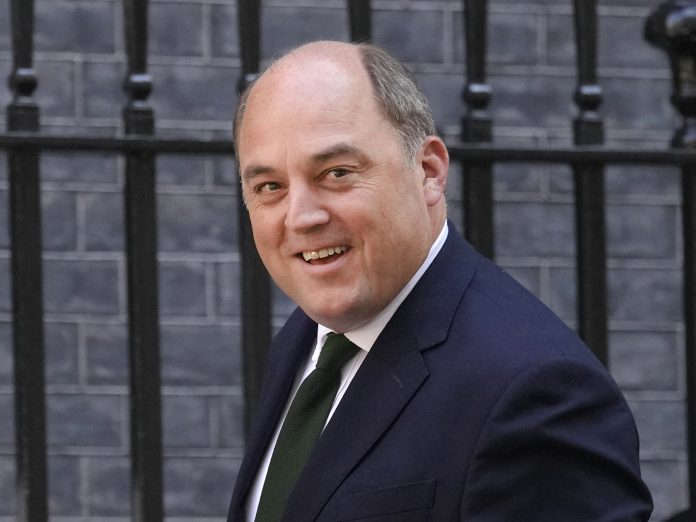Speaking at the Riga security conference in Latvia, Wallace advised the Baltic countries to put pressure on their wealthy European partners to spend 2 percent of their GDP on defence.
Ben Wallace warned that the political will to increase such spending, which has developed in the wake of Russia’s invasion of Ukraine, could lose momentum.
He called on NATO countries to “show Putin that we’re serious, that we are up-arming, and we are equipping, and then actually exercise together… Before Ukraine, NATO sort of moved at a snail’s pace.”
Responding to a question about the top priorities facing NATO countries, Wallace said the following:
There are some pretty big countries in Europe who I don’t think will maintain 2 percent in the long run, and I think there’ll be a number of pledges that won’t be made either or matched by even 2030.
Although, Wallace did not mention the countries’ names, the two richest members of the European Union (Germany and France) have consequently pledged to increase defence spending.
Germany’s Chancellor Olaf Scholz last year announced a shift to a new level of defence spending called the Zeitenwende, pledging €100 billion, or roughly double the annual defence budget. Despite this increase, Germany will spend only 1.57% of its GDP on defence this year, according to NATO calculations published in July would accelerate the modernization of the armed forces.
French President Emmanuel Macron in January additionally announced plans to increase funding for military modernization by €413 billion between 2024 and 2030, up from €295 billion in the previous budget. However, France’s annual spending is 1.9 per cent of GDP.
By the way, the UK is historically above this level; this year its defence budget is estimated at 2.07% of GDP.
David Cattler, NATO’s Assistant Secretary General for Intelligence and Security, expressed a more positive view of the situation: “When allies’ leaders had this discussion they also realized that there are some expenditures, some costs, that must be borne by nations and allies as a whole, for catch-up, for remedy of shortcomings, for additional capabilities development,” Cattler said. “That’s why you’ll see more and more allies not just reach the 2 percent, but exceed.”
Ben Wallace reported, calling off the positive sentiment towards alliance armaments:
We also need to start delivering by actually allocating the forces to the plans, but not in a sort of paper manner.
Wallace’s name was (he quit the British government in July) among the possible candidates to be NATO’s next secretary general before the defence alliance agreed in early July to extend Jens Stoltenberg’s term by a year.
